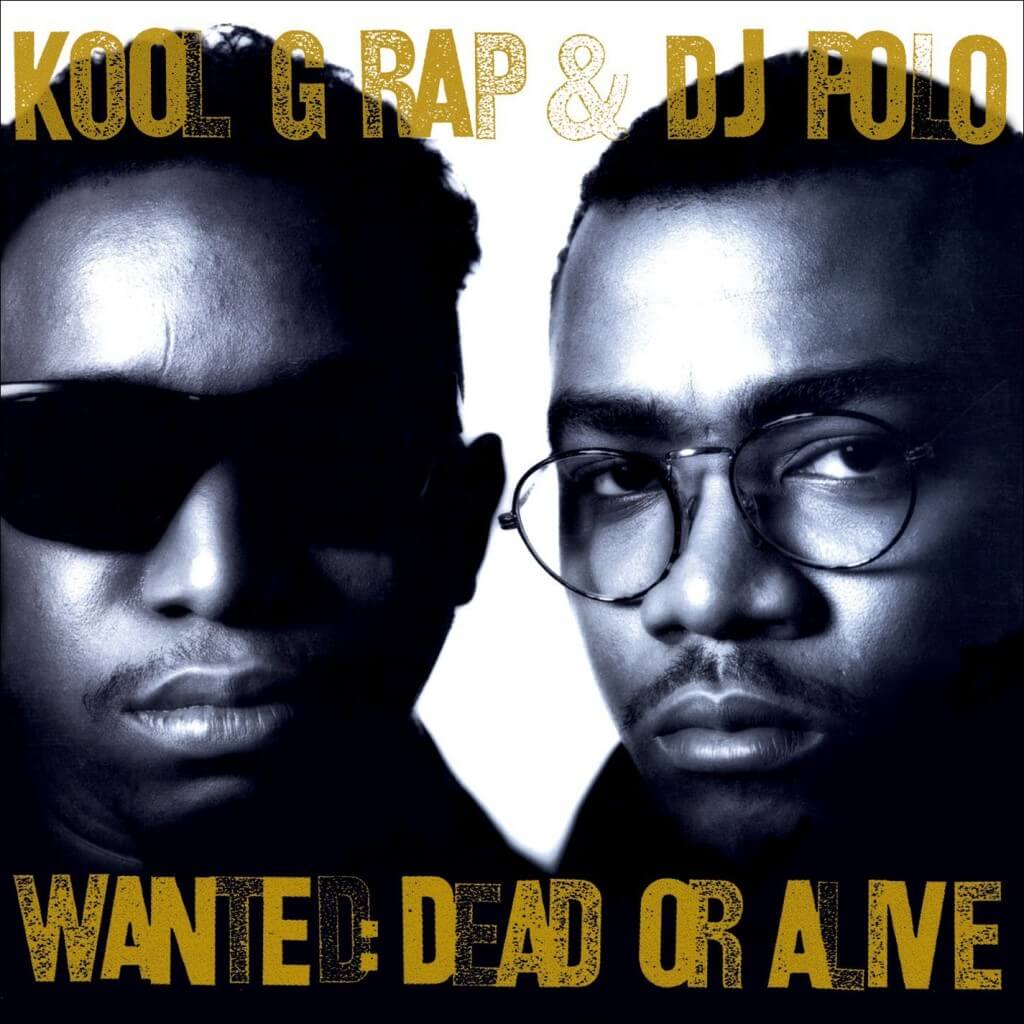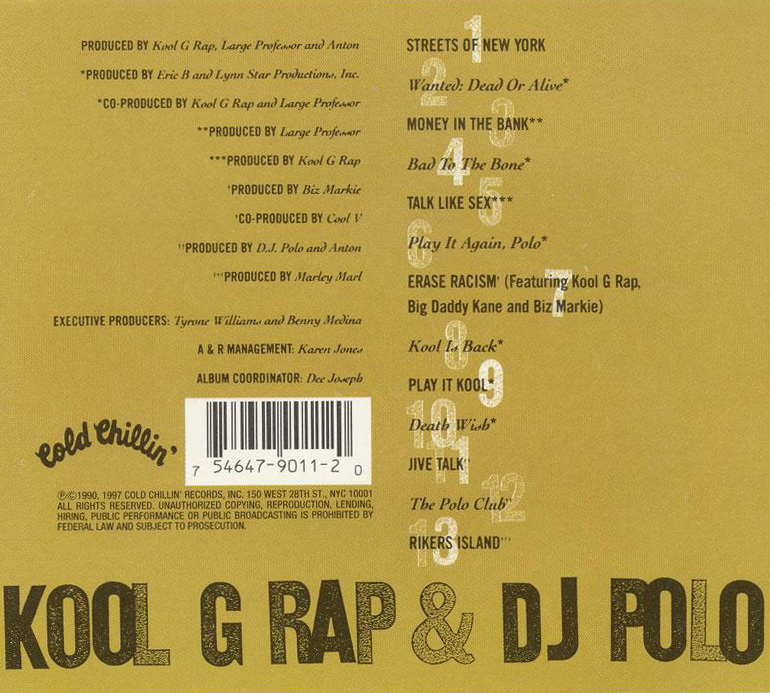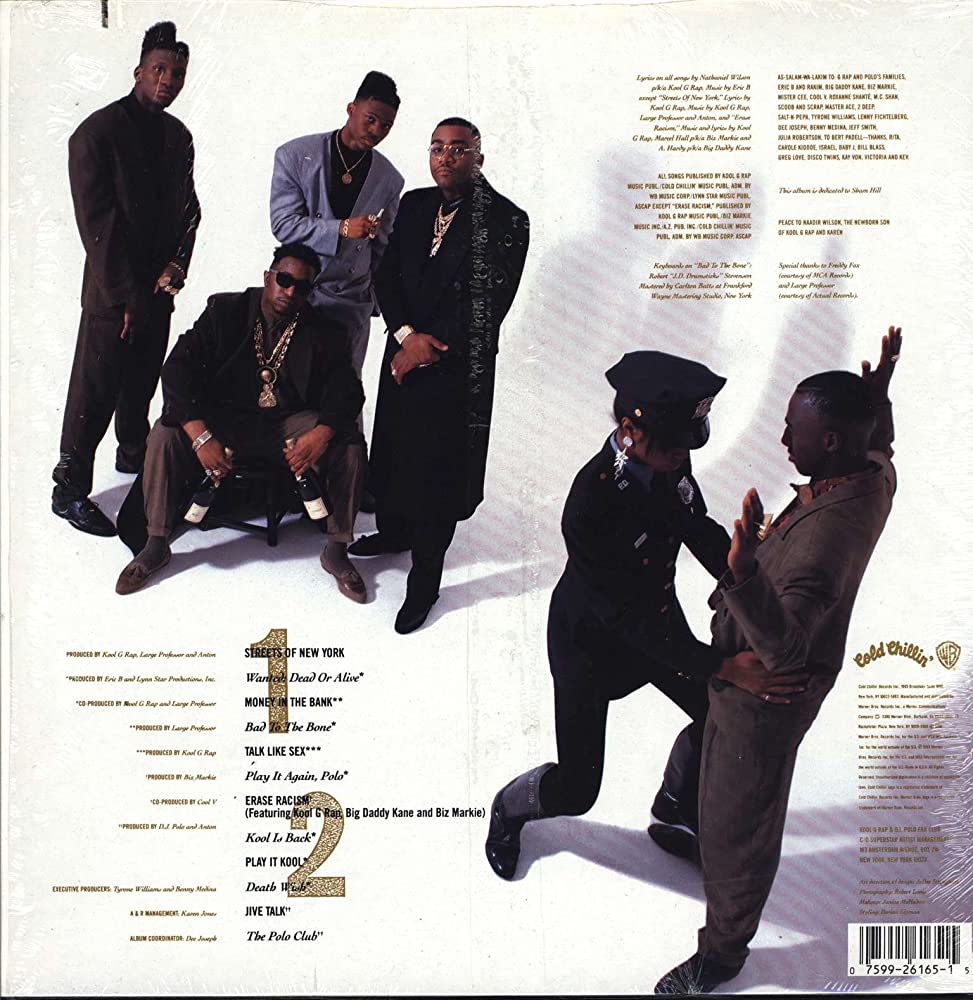
Kool G Rap, born Nathaniel Wilson in 1968, is a legendary figure in Hip Hop history, widely considered one the best and most influential rappers of all time. He emerged from the streets of Queens, New York, in the mid-1980s as a member of the Juice Crew, a collective of MCs and producers that included Big Daddy Kane, Biz Markie, and Marley Marl. Kool G Rap’s lyrical style was ahead of its time, characterized by vivid storytelling and complex rhyme schemes that would later influence countless other MCs. His debut album, Road to the Riches (with DJ Polo), released in 1989, is a classic. It showcased his lyrical prowess and helped establish him as one of the most respected and influential MCs of his era.
In this piece, we’re going to talk about one of the greatest rap albums of the early 1990s, Kool G Rap & DJ Polo’s 1990 low-key masterpiece, Wanted: Dead or Alive. This joint came out just a year after Road to the Riches, but it took things to a whole other level.
First off, let’s talk about the singles. “Streets of New York” and “Erase Racism” were all over Yo! MTV Raps back in the day, and for good reason. “Streets of New York” is a classic G Rap storytelling joint, with vivid descriptions of life in the city’s underbelly. And “Erase Racism” is a powerful call to action against bigotry and prejudice, featuring a strong guest verse from Big Daddy Kane, and a wacky chorus by the late Biz Markie.
But it’s not just the singles that make this album a Hip Hop monument. The whole thing is packed with bangers. The infectious posse cut “Money in the Bank” is a straight-up anthem, with G Rap and guest emcees Large Professor, Freddie Foxxx, and Ant Live spitting kickass braggadocio battle-rap bars. “Talk Like Sex” is a raunchy sex rap that would make even the most hardened player blush. The title track is a cinematic masterpiece, with references to a gangsta lifestyle and G Rap’s trademark flow, and “Kool is Back” is a lyrical masterclass. And there’s “Bad To The Bone”, with a driving beat and some of the most fun bars on the entire album, like “I’m bad to the bone with a style like Al Capone / I’ma smile while I give you the dial tone / Eatin shrimp and girls I be pimpin / Walk like I’m limpin, this brother ain’t simpin / Not to mention, I’m a winner of Mack Daddy conventions / I get a lot of attention…”
What really sets Wanted: Dead or Alive apart from Road to the Riches, though, is the range of themes. There’s still plenty of battle rap braggadocio, but there’s also a deeper exploration of topics like poverty, racism, and crime. G Rap paints a vivid picture of the struggles and dangers of life in the inner city, and he doesn’t pull any punches. One of the most important things about Wanted: Dead or Alive is the influence it had on other rappers. Nas has cited “Streets of New York” as a major inspiration for his classic track “N.Y. State of Mind” off Illmatic. And the album’s focus on organized crime and Mafia movies helped pave the way for the whole mafioso rap subgenre that would dominate New York Hip Hop in the ’90s.
Production-wise, the album is a bit of a departure from Road to the Riches. Kool G Rap & DJ Polo parted ways with Marley Marl, who had produced their debut and brought in Eric B. to handle things. Now, Eric B. was more of a money man than a real producer, but he had a knack for spotting talent. He brought in a young Large Professor to ghost-produce most of the beats, and the result is a sound that’s more polished and refined than on their first album.
Are there no drawbacks then? Sure there are, the album is not perfect. “The Polo Club” is a very average hip-house track that sounds terribly dated now and that sticks out like a sore thumb. And “Rikers Island” – while a dope track in itself – feels out of place because it’s a Marley Marl-produced cut that was recorded in 1987 and doesn’t really fit in the sonic context of the album. But these are small complaints. Overall, we can say that Wanted: Dead or Alive is a true classic that still holds up today. Kool G Rap’s rhymes are as sharp as they ever were, and the album proved to be a perfect stepping stone for what arguably is Kool G Rap & DJ Polo’s best album: Live and Let Die (1993). If you’re a fan of real Hip Hop, this album should be in your collection.

